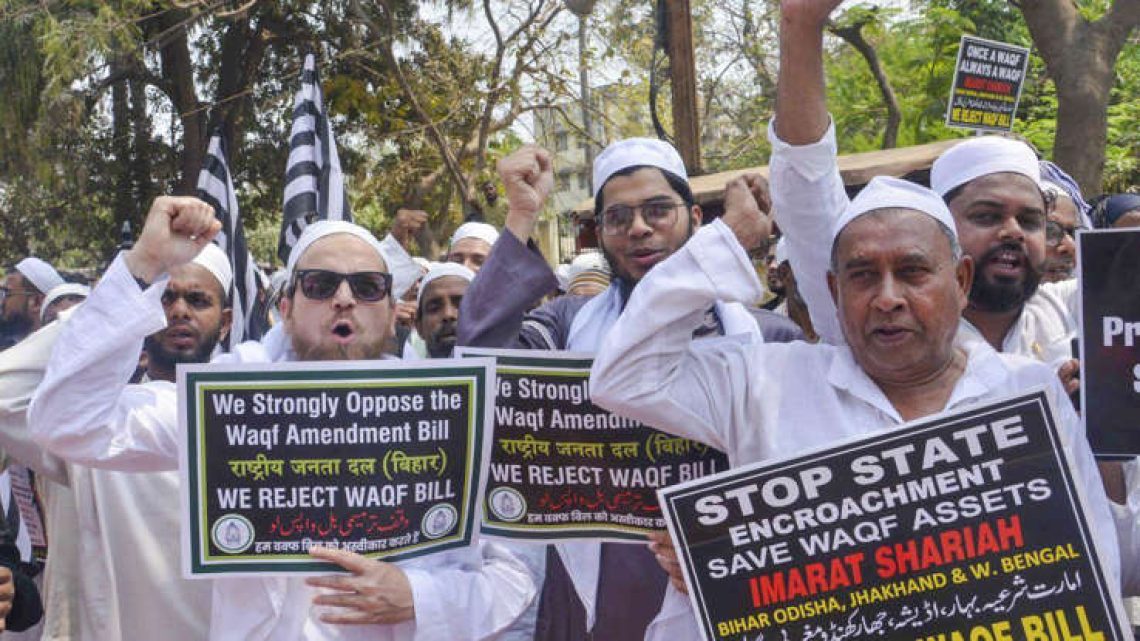
Protests Erupt Over the Waqf Amendment Bill: A Controversial Move Sparked by Allegations of Communal Bias in India and IIOJK
April 7, 2025India and the Indian Illegally Occupied Jammua and Kashmir (IIOJK) are witnessing rising tensions as the approval of the Waqf Amendment Bill by Parliament has ignited protests and allegations of communal bias, with students and communities across the country questioning its impact on Muslim heritage.
The approval of the Waqf Amendment Bill by the Indian Parliament has sparked significant anger across the region, particularly among the Muslim community. In a wave of protests, students from Jamia Millia Islamia voiced their strong disapproval by staging fierce demonstrations, with hundreds gathering to burn copies of the bill in protest. The students expressed their belief that the bill is a direct attack on Muslim identity, cultural heritage, and the institutions that have been supported by Waqf properties for centuries.
The All India Students Association (AISA), a key player in these protests, described the bill as a “communal bias” that would negatively affect Muslims. AISA’s statement called the legislation an “assault on Muslim identity and history” and criticized the government for using “management reform” as an excuse to strip away historically significant Waqf properties. These properties, they argue, have been essential for worship, education, and social welfare in the Muslim community.
Fatima Khalid, a postgraduate student from Jamia Millia Islamia, voiced her concerns, stating that the government’s actions were an attempt to erase Muslim heritage. “This government wants to erase our past and silence our future,” she said, accusing the government of using bureaucratic jargon to justify the expropriation of Waqf land. Many students allege that the bill paves the way for the government to sell Waqf properties to corporate interests, further undermining their historical significance.
The Waqf Amendment Bill has raised widespread fears that it could lead to the privatization of land and institutions that have long been symbols of Muslim religious and cultural identity. These concerns have fueled protests not only at Jamia Millia Islamia but across various parts of the country, as Muslim communities unite in opposition to the bill.
The protests at Jamia Millia Islamia became particularly intense as demonstrators accused the university’s administration of trying to suppress their right to protest. Despite this, students continued to gather at the university’s main gate, where they raised slogans, delivered impassioned speeches, and, in an act of defiance, burned copies of the bill. This display of anger reflects the deep frustrations felt by many Muslims who view the bill as a threat to their cultural and religious rights.
The Waqf Amendment Bill has stoked controversy among Muslim communities, who view it as an attack on their long-standing institutions. The Waqf properties in question have been maintained for generations, providing vital services for education, worship, and social support. The bill’s critics believe it undermines the very foundation of these institutions and may lead to the erosion of the Muslim community’s historical legacy in India.
The protests show no signs of dissipating as more students and activists join the growing opposition to the bill. The controversy surrounding the Waqf Amendment Bill has ignited broader debates about the protection of religious and cultural rights in India.

